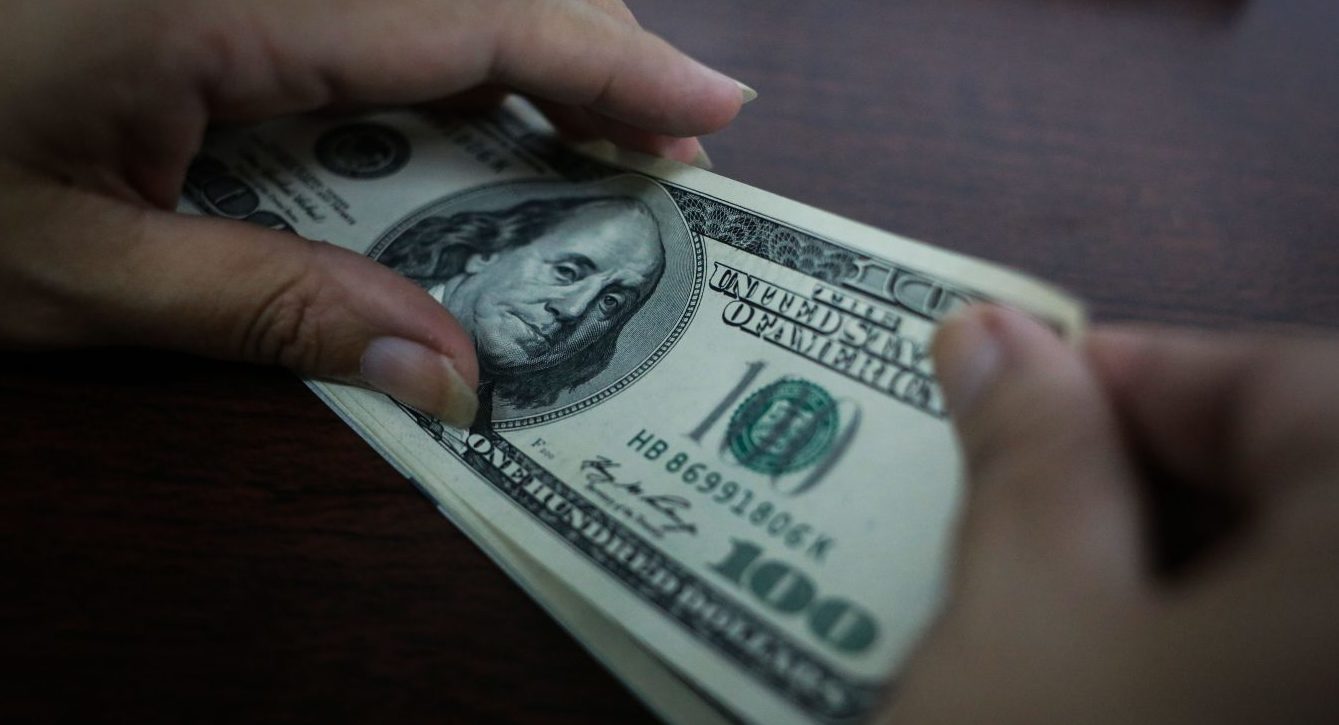Business communities are pointing out the lack of government authority’s management on Kyat depreciation while the Myanmar government blames it on currency manipulation and trade war between US and China
26 กันยายน 2561
YANGON—While Myanmar’s government has blamed currency manipulation and the trade war between the United States and China for the record depreciation of the kyat against US dollar, business circles are pointing out the Myanmar government’s mismanagement and the Central Bank of Myanmar’s poor performance.
The kyat-dollar exchange rate has increased steeply from 1,344 kyats per US dollar on June 1 this year to over 1,600 kyats per US dollar in the third week of September.
“There are only a few big players in the market who trade US dollars. In the past, the exchange rates would be stable once the government controlled them. But [the current government] won’t do that. It doesn’t want to do that. So we are tracking money transactions now,” the President’s Office spokesperson U Zaw Htay told reporters in Naypyitaw on Friday.
The government is doing an investigation and will then take appropriate action, said U Zaw Htay.
Last month, the government suspended issuing re-export licenses in order to help bring down the dollar value. However, the plan was reportedly leaked and big market players were able to secure re-export licenses just before the suspension. A license now fetches up to 100 million kyats in the market.
The Ministry of Commerce is investigating if the news really was leaked. U Zaw Htay also said that hollow transactions of the dollar have also contributed to the weakening exchange rate. The ‘hollow transactions’ he refers to are similar to the concept of no-interest credit—buying only verbally without paying the cash.
“Previously, there was only hollow transactions in gold, but there are now hollow transactions of the greenback. This is one of the factors,” he said.
It is not yet clear who is reaping benefits from the slump in the kyat, but those at grass-roots level are already suffering.
Fuel prices have increased by more than 16 percent over the past three months with the price of Ron 92, Ron 95 and premium diesel reaching more than 1,000 kyats per liter. People have to pay more for food due to higher transportation costs, and long-distance bus operators have also increased their bus fares.
While other currencies have also slumped against the US dollar, the Myanmar kyat has fallen by the largest degree among its neighboring countries. The price of pharmaceutical products, which Myanmar imports from Thailand, India and a few other countries, have also gone up.
“The Central Bank of Myanmar can only control the formal market. The problem is that the informal market is quite big. The demand for dollars has also increased because of the [re-export] market,” said a deputy minister who didn’t want to be named.
The deputy minister said that he personally has no idea if private banks are involved in manipulation of US dollars.
One currency dealer, speaking under the condition of anonymity, said that there are fewer than ten big currency dealers in the commercial capital and some of them also trade with Mandalay. The total value of hollow transactions of the US dollar in the market totals millions per day, he said.
“They have huge capital. One of them can save up to 30 million US dollars in his warehouse. The price of gold and the US dollar have increased this much because of manipulation. That’s why the price of fuel and medicines have increased. It is not good for the country,” he said.
Yangon-based businessman U Soe Tun said that many businesses have switched to dollar trade because of the country’s economic downturn and that hundreds of dealers are playing in the market—not just ten.
“It is easy to make hollow transactions. Suppose you buy one million US dollars verbally [without paying the cash] at the rate of 1,600 kyats per dollar. If the price goes up to 1,610 kyats in the evening, you earn 10 million kyats in profit. You don’t need to invest any money,” explained U Soe Tun.
“Can you tell me any business from which you can earn 10 million kyats in a day without any capital? You can’t question whether it’s ethical or not. Everyone needs money. It is driven by the situation,” he added.
Those in business circles have also criticized the government for suspending the granting of re-export permits without notice, saying that the government announced the suspension just one month in advance last year.
Businesspeople have denied reports that the price of re-export licenses went up because of the leaking of the government’s plan to suspend the licenses. They said it was because big exporters offered competitive prices to buy re-export licenses from smaller-scale exporters, they said.
The president or state counselor should speak about the situation to restore the public’s confidence, suggested a businessperson who spoke on the condition of anonymity.
“Last time, after the state counselor said that she would hold a meeting with businessmen [on Aug. 27], the exchange rate strengthened by 70 kyats but she spoke nothing [about the weakening exchange rate] and it weakened again.”
“People who have money will buy [and save] dollars. It is not that it is only bought by four or five manipulators. Everyone is buying dollars. They are afraid that their money [kyats] will devalue.”
“The Central Bank of Myanmar should at least summon and [hold discussions] with currency dealers. The situation will only get worse if the government does nothing,” he added.
Businesspeople have suggested that the government should increase tariffs or ban the import of luxury goods and seek ways to curb the illegal transfer of remittance.
“We are doing extensive investigations into what big market players, including money changers, are doing. I can’t say the details now, but we are acting accordingly,” said U Zaw Htay.
(The Irrawaddy: https://www.irrawaddy.com/business/money/business-community-counters-govt-reasons-kyat-depreciation.html )











